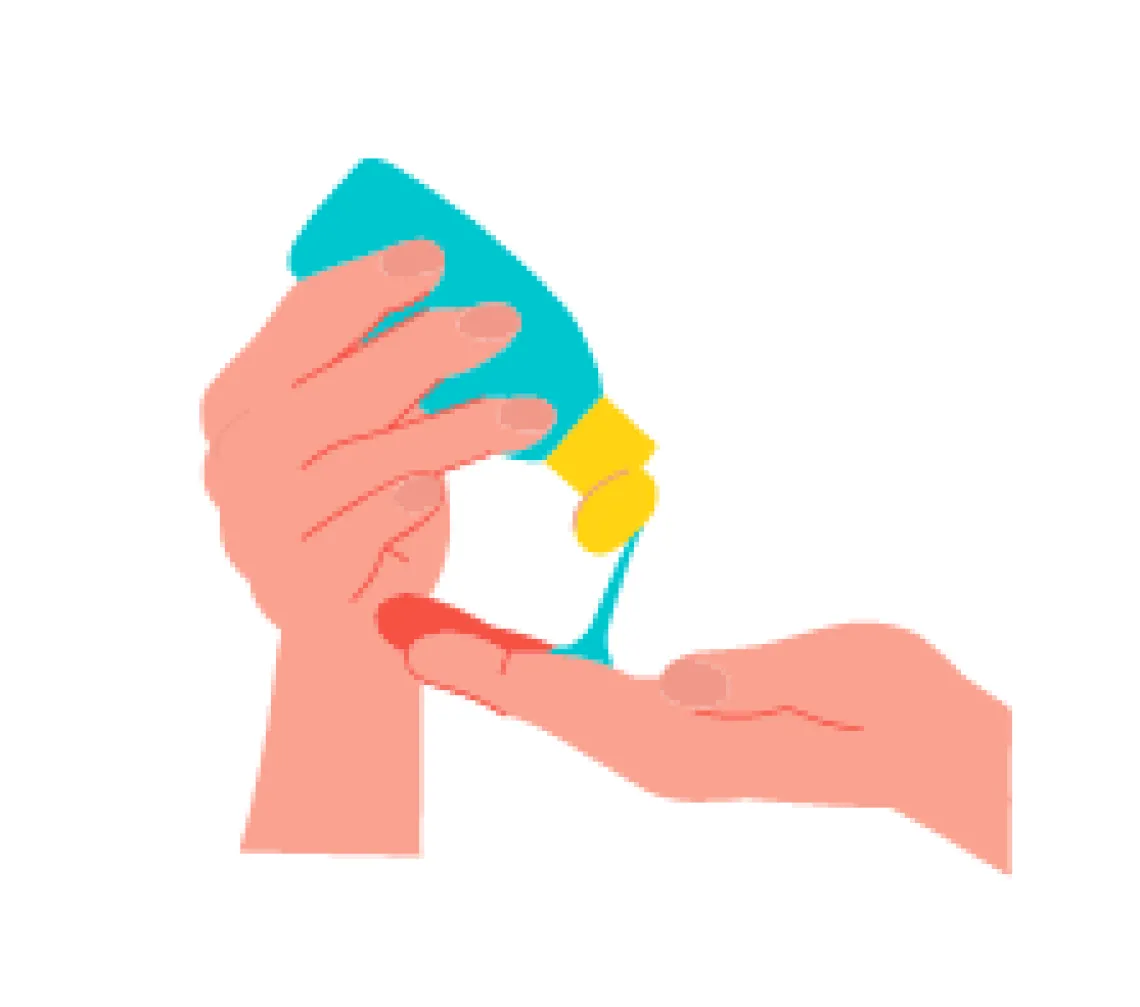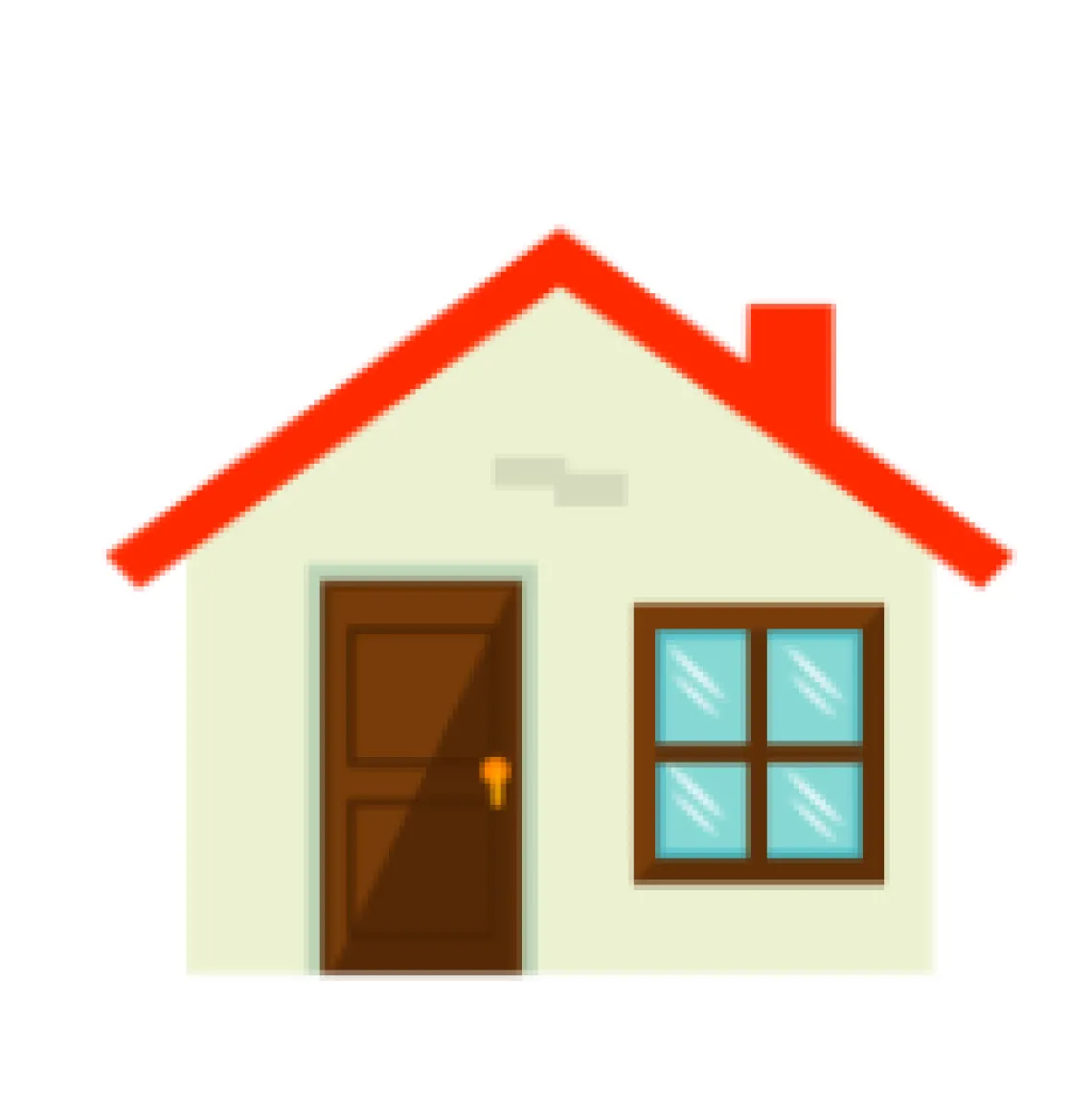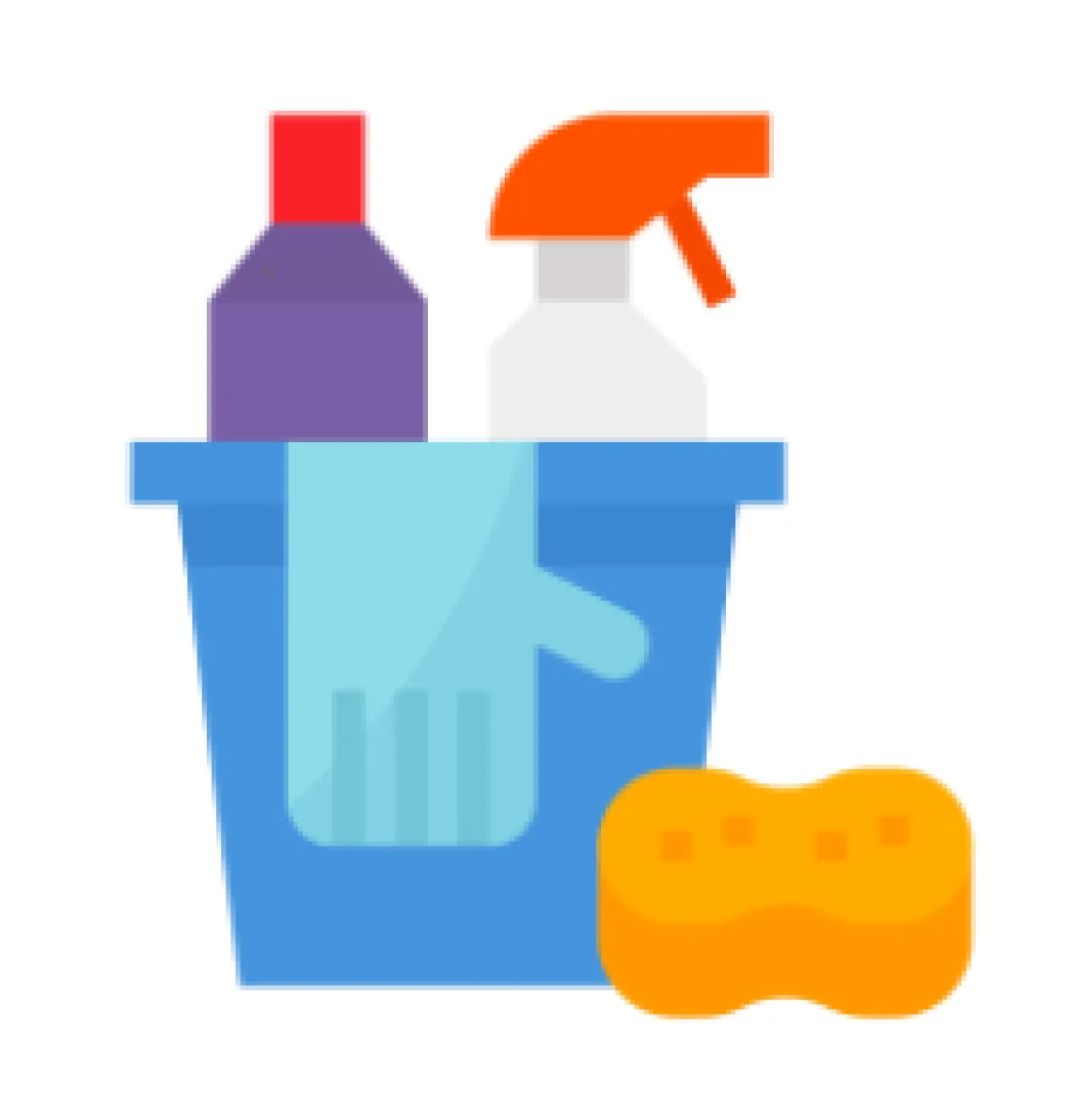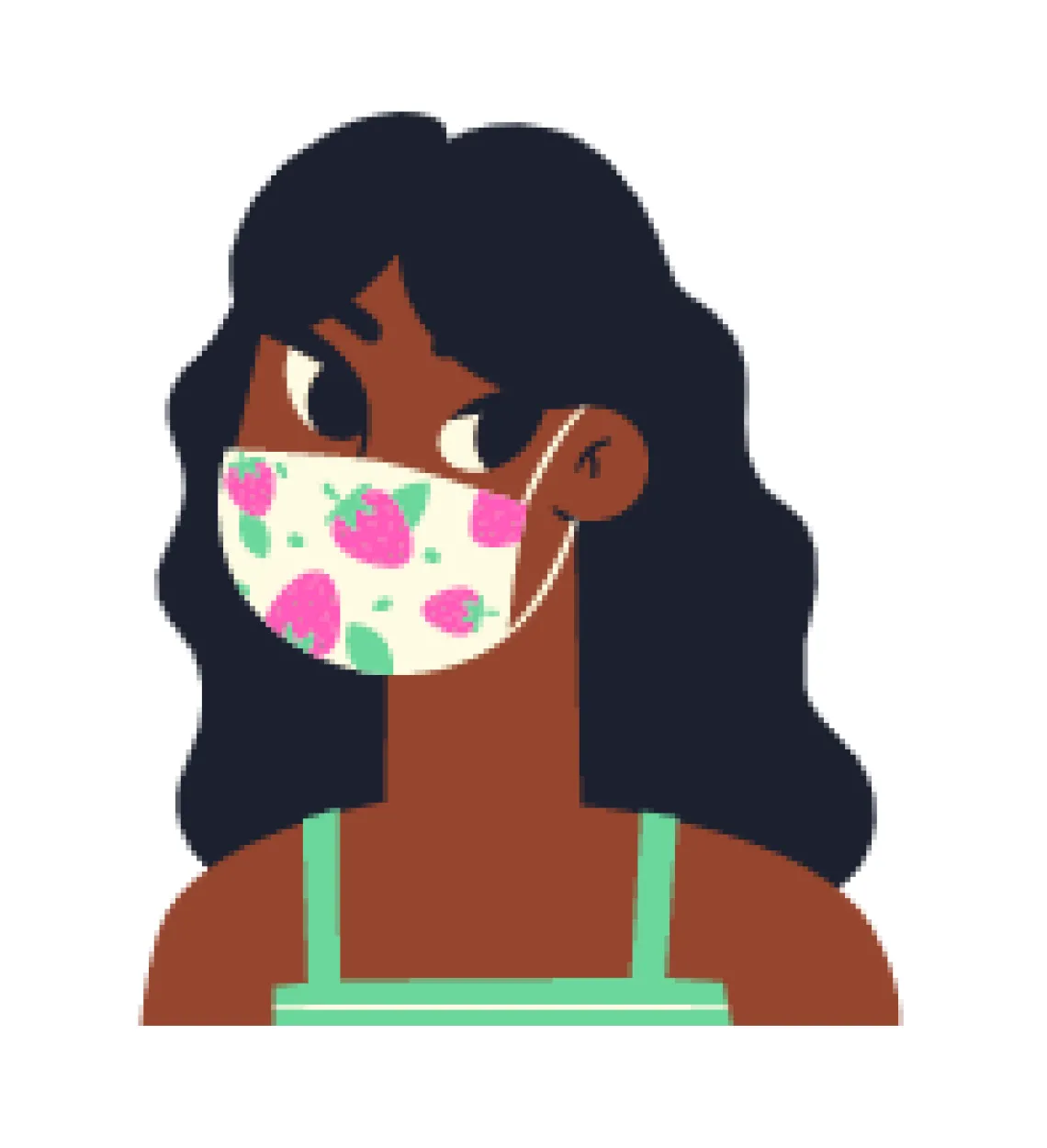What You Need to Know-Week of June 22nd
The most important weekly updates for you to keep your community healthy

In this Update:
1. Take Caution during COVID-19: Asymptomatic, Pre-symptomatic, and Symptomatic Cases
2. Tips for Travel: Should I fly?
3. Pandemic Preparedness: Daily precautions to take to prevent COVID-19
1. Take Caution during COVID-19: Asymptomatic, Pre-symptomatic, and Symptomatic Cases
COVID-19 is mainly spread by close contact (closer than 6 feet) with an infected individual, but there is growing evidence that airborne transmission, particularly in enclosed spaces and buildings is causing outbreaks in churches, workplaces, congregate living settings, and gyms. Airborne spread can occur beyond six feet. Therefore, it is critically important to wear masks when you are indoors. An infected person spreads the virus through droplets that are dispersed by breathing, singing, speaking, coughing, sneezing, etc.
Once someone becomes infected they have a period where the virus is reproducing in their body. No one shows signs or symptoms immediately after infection. Some people will go on to be what is called a symptomatic case which means they show signs and symptoms of being ill, this can range from mild to extremely severe. The time from when these people become infected and become symptomatic is called the incubation period and in this stage people are considered pre-symptomatic. Some people will never show signs and symptoms of illness after they are infected. Those people are called asymptomatic. As some cases are quite mild it can be challenging to distinguish true asymptomatic cases from very mild symptomatic cases. Estimates of the proportion of people who are asymptomatic range widely because of this challenge, but up to 80% of infections are estimated to be mild or asymptomatic. Therefore, all individuals, regardless of symptoms, should wear a mask.
Use the table below as a reference for the differences and similarities between these three types of cases:
| Asymptomatic Cases | Pre-symptomatic Cases | Symptomatic Cases | |
| Definition | Individuals who ARE infected with the virus and can spread COVID-19 to others. They are infectious, but will not ever show symptoms. | Individuals who ARE infected with the virus and can spread COVID-19 to others. They are infectious, but are not showing symptoms yet, although they will at some point during their infection. | Individuals who ARE infected with the virus and can spread COVID-19 to others. They are infectious and are showing symptoms. |
| Infected with the virus | ✓ | ✓ | ✓ |
| Can spread the virus | ✓ | ✓ | ✓ |
| Person will NEVER show symptoms | ✓ | ||
| Person WILL show symptoms IN THE FUTURE | ✓ | ||
| Person IS CURRENTLY SHOWING symptoms | ✓ |
2. Tips for Travel: Should I fly?
According to an article written by University of Arizona epidemiologist, Dr. Kacey Ernst and environmental scientist, Dr. Paloma Beamer: the answer is – there is no way to make travelling entirely safe. Since asymptomatic cases are common for COVID-19, this means that there is a risk that you or others travelling around you may be carrying the virus without being aware or showing any symptoms.
COVID-19 mainly spreads from person-to-person through close contact (being within 6 feet of others), and there is also evidence that the virus can also be spread through touching contaminated objects or surfaces and then touching your mouth, nose, or eyes. To lessen the risk of catching the virus it is important to remember to avoid contact with high-touch surfaces, crowded areas and areas with poor ventilation. However, while you are travelling by plane, some of these precautions can be very difficult to avoid. Answer these questions to help determine the safest way for you to travel:
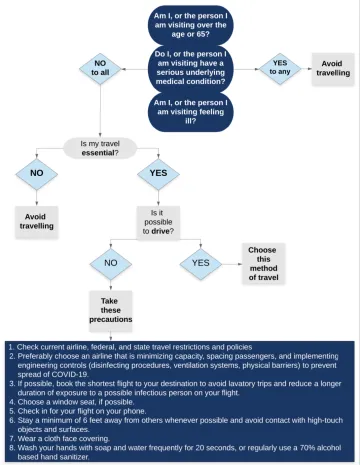
3. Pandemic Preparedness: Daily precautions to take to prevent COVID-19
As COVID-19 cases continue to rise in Arizona, it is now more important than ever to take daily precautions in order to protect yourself and others from the virus. By performing these actions (listed below), you will be doing your part to keep yourself and those around you safe. These safety precautions include:
|
Image
|
✓ PRACTICE PROPER HAND HYGIENE Frequently wash your hands thoroughly with soap and water for 20 seconds. Keep wipes in your car to wipe your hands when you come into your car from shopping. You can carry hand sanitizer in your bag, pocket or purse if available. Hand sanitizer left in your car will not catch on fire, but it is flammable if it comes in contact with an ignition source such as flame from a lighter. High heat exposure to the Arizona sun can, however, reduce its effectiveness. |
|
Image
|
✓ STAY HOME If you (or others in the household) are feeling ill, or if you have had a known exposure to someone with COVID-19 up to 14 days after your most recent exposure. Avoiding unessential outings, close contact with individuals outside of the home, group gatherings and crowded areas. For more information on quarantining and isolation, visit this link. |
|
Image
|
✓ DISINFECT AND SANITIZE Commonly touched surfaces and objects in the home should be regularly disinfected. For a list of what disinfectants can be used against COVID-19 (The EPA’s N list), visit this link. (click here to learn how to use the EPA’s N list) CDC advises that “color-safe” bleach is not effective for use against COVID-19. |
|
Image
|
✓ WEAR CLOTH FACE COVERINGS Whenever you are in public, around a potentially sick individual, or a confirmed sick individual always wear a cloth face covering. Please visit this link to learn how to make a no-sew mask out of materials you likely have at home. Three layer masks are recommended for those under 65 and without health conditions and medical grade masks are recommended for those older than 65 and with immunocompromising conditions. |
|
Image
|
✓ MONITOR YOUR SYMPTOMS Watch for symptoms – visit this link for the CDC’s list of COVID-19 symptoms. Take your temperature often (above 100 degrees Fahrenheit is usually considered an abnormal temperature). Text SICK to 1-833-410-0556 if you are feeling ill between updates. |
The next update will cover face masks. If you would like to learn more about this and other topics related to COVID-19 in Arizona, please complete next week’s AZCOVIDTXT survey that you will receive via text in about a week.

